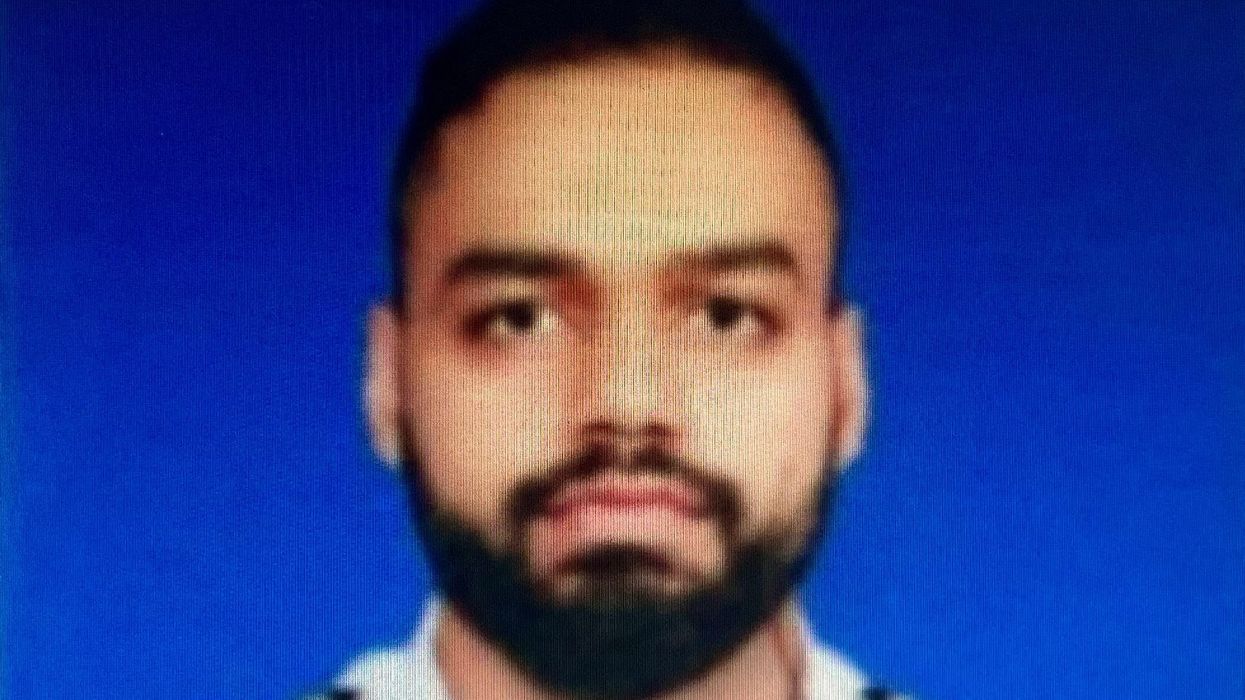LIEUTENANT Vinay Narwal of the Indian Navy had been married just six days earlier. He was on his honeymoon in Pahalgam when he was shot in the head by a terrorist while eating bhelpuri with his wife.
Manjunatha, a tourist from Karnataka, was asked if he was Hindu or Muslim before being shot dead.
Ramachanran, a Gulf returnee on holiday with his wife, daughter, and grandkids was shot dead, while his family narrowly escaped.
Manish Ranjan, a Section Officer with the Intelligence Bureau, was visiting Kashmir from Hyderabad.
Atul Moni, an engineer from Mumbai, was recognised by shocked colleagues after his name appeared on news tickers.
These were some of the 26 people were killed in a terrorist attack in India-administered Kashmir's Pahalgam on Tuesday, April 22.
Most of the victims were tourists from different parts of India. Officials said it was the deadliest civilian attack in the Valley since 2000.
The gunmen opened fire at a popular tourist spot using automatic weapons. All 26 victims were men, according to a hospital list verified by police. The victims' bodies were brought to Srinagar in ambulances, and military helicopters searched nearby forested hills for the attackers.
Lieutenant Vinay Narwal, 26, from Haryana, was among those killed. He had arrived in Pahalgam for his honeymoon with his wife, Himanshi Narwal. “We were having bhelpuri when a man came and shot my husband,” Himanshi said in a video. His body was brought to Delhi on Wednesday. ANI reported that Himanshi hugged the coffin, saluted him, and said, “Jai Hind.” She added, “I pray that his soul rests in peace... We will make him proud in every way.”
#WATCH | Delhi | Indian Navy Lieutenant Vinay Narwal's wife bids an emotional farewell to her husband, who was killed in the Pahalgam terror attack
The couple got married on April 16. pic.twitter.com/KJpLEeyxfJ
— ANI (@ANI) April 23, 2025
Another victim, Manjunatha from Karnataka, was shot dead in front of his wife, Pallavi Rao. “When some militants approached, they were wearing military fatigues. They asked my husband if he was a Hindu or Muslim and he replied ‘Hindu’ thinking they were Indian soldiers. They shot him dead,” she told journalists.
Shubham Dwivedi, a 31-year-old businessman from Kanpur, was shot dead in front of his wife just two months after their wedding on February 12. The couple had gone to Kashmir on April 16 for a week-long vacation with nine other family members. On Tuesday, while the rest of the family stayed near their hotel, the newlyweds went horse riding around noon, said Shubham’s uncle, Manoj Dwivedi to PTI, who lives next door in Kanpur in UP.
Sushil Nathaniel, 58, from Indore, was in Jammu and Kashmir with his wife, daughter, and son to celebrate Easter. His cousin Sanjay Kumrawat told PTI, "We have spoken to his wife and son over the phone. They told us that the terrorists asked Sushil's name and forced him to kneel down, then asked him to recite the Kalma (phrase articulating Islamic faith). When Sushil said that he could not recite Kalma, the terrorists shot him."
Ramachandran, 65, a native of Edapally in Kochi, was shot dead in front of his daughter, who had come from Dubai to meet her parents. A travel enthusiast, Ramachandran had gone to Kashmir with his wife, daughter, and grandchildren for a holiday.
Manish Ranjan, an Intelligence Bureau officer from Bihar posted in Hyderabad, was also killed. Official sources confirmed his death to PTI.
Atul Srikant Moni, an engineer at a railway workshop in Mumbai, was also among the victims. His colleagues learned of his death through news reports, PTI said.
VIDEO | Mortal remains of deceased Atul Mone and Hemant Joshi leave for Dombivali for cremation, Mumbai.
(Full video available on PTI Videos - https://t.co/n147TvrpG7) pic.twitter.com/xPjLqUwCOJ
— Press Trust of India (@PTI_News) April 23, 2025
Neeraj Udhwani, 33, from Jaipur, was on holiday in Kashmir with his wife when the attack occurred. IANS reported that he was killed in the shooting at Baisaran Valley, while his wife, who stayed back at the hotel, survived.
VIDEO | Mumbai: Cabinet Minister Ashish Shelar (@ShelarAshish) and Mangal Prabhat Lodha (@MPLodha) along with Shivsena MP Shrikant Shinde (@DrSEShinde) pay last respect to Pahalgam attack victim Dilip Desale and Laxman Lele.#PahalgamTerroristAttack
(Full video available on… pic.twitter.com/JivJ52F56q
— Press Trust of India (@PTI_News) April 23, 2025
All victims except one were Indian nationals. One victim, Sudeep Neupane, was from Nepal.
Full list of victims in Pahalgam attack:
- Sushil Nathyal, Indore, Madhya Pradesh
- Syed Adil Hussain Shah, Pahalgam, Kashmir
- Hemant Suhas Joshi, Mumbai
- Vinay Narwal, Haryana
- Atul Srikant Moni, Maharashtra
- Neeraj Udhawani, Uttarakhand
- Bitan Adhikari, Kolkata
- Sudeep Neupane, Nepal
- Shubham Dwivedi, Kanpur, Uttar Pradesh
- Prashant Kumar Satpathi, Malashwar, Odisha
- Manish Ranjan, Bihar
- N Ramachandra, Kerala
- Sanjay Lakshman Lali, Thane, Maharashtra
- Dinesh Agarwal, Chandigarh
- Sameer Guhar, Kolkata
- Dileep Dasali, Mumbai
- J Sachandra Moli, Visakhapatnam
- Madhusudan Somisetty, Bengaluru
- Santosh Jaghda, Pune
- Manju Nath Rao, Karnataka
- Kastuba Ganvotay, Pune
- Bharat Bhushan, Bengaluru
- Sumit Parmar, Gujarat
- Yatesh Parmar, Gujarat
- Tagehalying, Arunachal Pradesh
- Shaileshbhai H Himmatbhai Kalathia, Gujarat
#WATCH | Shubham Dwivedi, a resident of Kanpur, Uttar Pradesh, lost his life in the #PahalgamTerroristAttack
His cousin Saurabh Dwivedi in Kanpur says, "...Shubham Bhaiya got married on February 12 this year. He was in Pahalgam with his wife. My sister-in-law called my uncle and… pic.twitter.com/lgAyogQV5c
— ANI (@ANI) April 22, 2025





